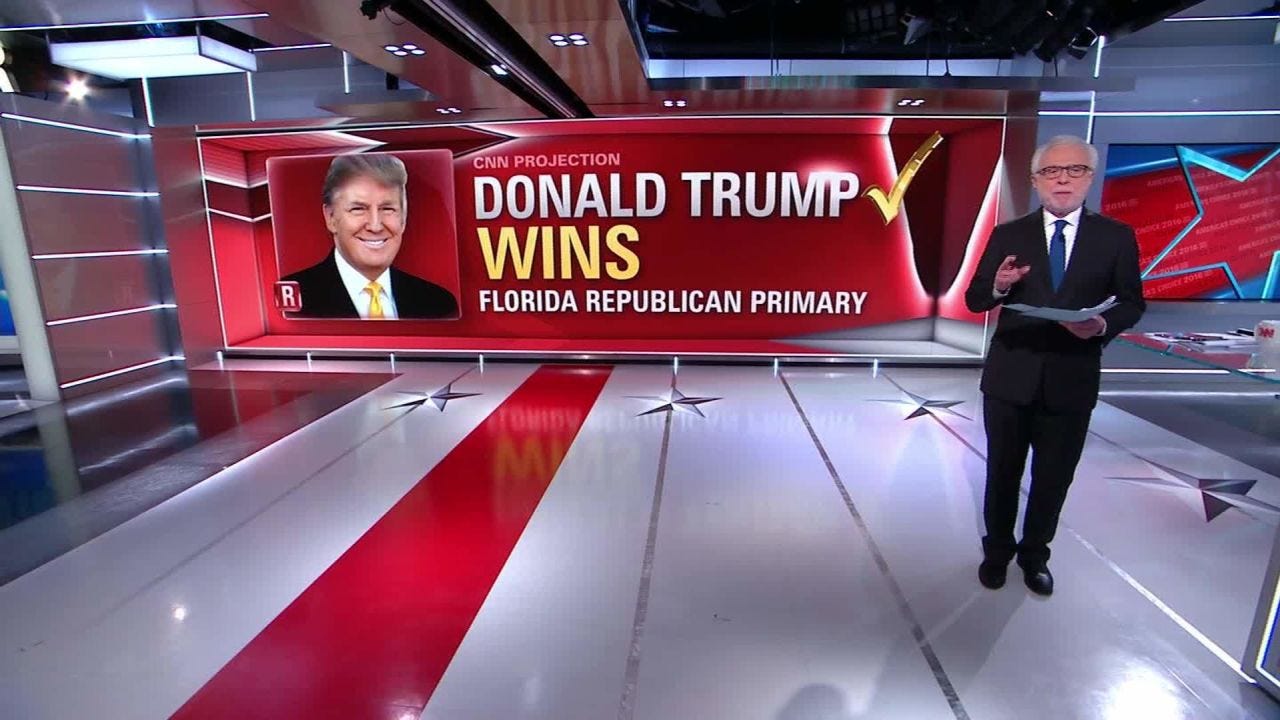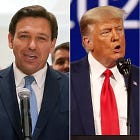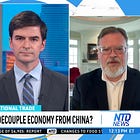Election Reform: The Necessity of Closed Primaries
The Supreme Court should have taken the case on the constitutionality of closed primaries — essential to the freedom of association and a system of quality control for American civic life.
This analysis is free, but with Premium Membership you get MORE. Join today.
NOTE: Election reform is not just about paper ballots and inked thumbs. It’s also about how we go about choosing our party nominees.
I grew up in an overwhelmingly single-party (Democrat) Arkansas. Time after time, if Republicans somehow produced a candidate capable of performing well in November, Democrats flooded into our open primary to sabotage him. There weren’t many Republicans so it didn’t take many Democrats to do it.
This is “democracy”? No, this is a sick joke. It’s also a recipe for one-party rule, which was and is the point.
In California today it’s far worse. All candidates run on a single primary ballot — the parties are rendered irrelevant, incapable of choosing their own standard bearers. But don’t think this affects both parties equally: oh no. The result is that frequently, the top two vote getters who thereby advance to the general election are both Democrats: no Republican is permitted to appear on the November ballot at all.
So let me rephrase that: exactly one party is rendered irrelevant. Ours.
This is absurd, immoral, and in my view unconstitutional. Catholics wouldn’t let Baptists pick their Pope, and selecting party nominees is no different. Closed primaries are necessary for liberty. They’re also necessary for brand integrity and truth in advertising.
Jacob Grandstaff does a great job in the following essay of explaining how and why. — RDM
by Jacob Grandstaff
October 22, 2025
You may have missed it among the recent wild headlines of Democrats wishing death on Republicans, but the Supreme Court missed an opportunity to cement the closed primary system that keeps outsiders from voting in party primaries, with huge ramifications for our republic’s future.
Although the 11th Circuit Court correctly dismissed Polelle v. Byrd, the justices announced on Oct. 14 that they declined to hear the case’s challenge to the closed primary’s constitutionality. If the court had taken it up, they could’ve solidified this important aspect of American democracy, which allows the members of each party to select their own nominees without interference and filters quality candidates into general elections.
The case centered on whether 3.4 million registered independent voters were robbed of their constitutional rights under the First and Fourteenth Amendments by being barred from casting a ballot in Florida’s closed primary elections.
Petitioner Michael Polelle, a retired attorney, sued the Florida Secretary of State under the argument that they were. He was joined by former Democrat presidential candidate Andrew Yang’s Forward Party, the Independent Voter Project, and Open Primaries, all of which filed supporting amicus briefs arguing that closed primaries treat non-affiliated or third-party voters as second-class citizens. (RELATED: Five Quick Things: The Party of Vote Fraud)
From a constitutional standpoint, this is ridiculous. Anyone can register with whichever political party they choose and vote in that party’s closed primaries. The petitioners made the argument that people shouldn’t be forced to actually join a party to vote in primary elections for who will represent that party.
If successful, this would have diluted the very reason for having partisan primaries in the first place.
Political Parties Exist for a Reason
Closed primaries aren’t just constitutional. They’re the gold standard for picking candidates who can withstand the general election. They discriminate — by design — against the ideologically uncommitted, and that’s precisely why they work.
Political parties exist to advance ideas, not host auditions for “Most Likeable Candidate.” The First Amendment protects freedom of association, which means they don’t have to let outsiders crash the party. We see — and accept — this in every other part of our lives. PETA doesn’t let barbecue pitmasters pick its leadership team, the Yankees don’t let the Red Sox make their draft picks, and churches don’t let non-Christians become members. Why would party primaries be any different?
Most “independents” aren’t actually independent, anyway. In 2007, a Washington Post study found that just 18 percent of so-called independents were “quintessential swing voters.” Fast forward to 2025, and a CNN poll last month found that this group no longer exists.
America’s “independents” are usually straight-ticket partisans who flatter themselves as being “independent-minded.” Many are self-styled centrists who just want the stock market to hum. Others have checked out of politics altogether. Forcing parties to let these folks vote in their primaries isn’t democratic; it’s an invitation to electoral sabotage.
Before the 1970s, when parties chose nominees in the proverbial smoke-filled rooms, nominees were typically chosen by their party’s most politically active members. Although undemocratic by modern standards, these 19th and 20th-century conventions produced great statesmen like Abraham Lincoln and Dwight Eisenhower.
We don’t typically nominate presidents that way anymore (although the Virginia GOP did nominate Governor Glenn Youngkin through its 2021 convention). Yet the closed primary we use in its place is like an extra-large convention in which every Republican or Democrat can participate in the selection of their party’s standard-bearers.
Unlike the conventions of old, however, the closed primary gives insurgent candidates — think Donald Trump — a shot at shaking up a sleepy establishment. Without closed primaries, such candidates are typically drowned out by the nonaligned who believe in nothing and treat politics like a popularity contest; or even worse, sabotaged by Democratic voters crossing over to tip the GOP primary in the direction most favorable to their own party’s general election chances.
And that is exactly how the Uniparty establishment wants it.
Closed Primaries Produce Better Candidates
Diversity of thought and healthy division strengthen democracy. Andrew Yang’s bland form of technocratic consensus has stagnated it.
America has never been a nation of political junkies — and that’s fine. Whether turnout is high or low in any given election has little bearing on the health of our republic, and we should reject the Left’s calls for sweeping policy reforms when things don’t break their way. Is the primary system that’s worked for generations, in some places for a century or more, suddenly undemocratic? What about the convention system before it that worked for 150 years?
The closed primary system actually strengthens the republic because it motivates informed and passionate voters to turn out during the general election. Committed partisans understand that the slightest scandal can sink their party in the general election and so balance ideological purity with electability. Although there are exceptions, this intense scrutiny by active party voters tends to reward sharper candidates who represent the majority of their party.
But even more basic still, would your church let Buddhists pick its pastor? Would a mosque let Baptists pick its imam? The idea is just absurd.
Many Americans who don’t register with either party are non-partisan-in-name-only, non-ideological, or disillusioned. Allowing these spoilers, centrists, and cranks to sabotage partisan primaries produces bland nominees who often move to the final round with a plurality of their primary’s voters rather than a majority. This discourages the most informed and committed citizens from turning out in the general election, and creates government by establishment (liberal) consensus rather than fostering healthy public policy debates.
The Polelle case offered the Supreme Court the ability to declare once and for all the constitutionality of the closed primary. It’s unfortunate they declined the opportunity. From a policy standpoint, weakening the partisan nature of partisan primaries would result in far more incompetent, corrupt, and unpopular candidates winning elections. It also robs the members of our parties of their First Amendment right of freedom of association. A club should get to choose its own leaders. If you don’t like either club, work within it to change it, or go start a new one. Nothing’s stopping you.
Closed primaries are the first line of defense against mob rule — which typically means establishment rule — by allowing committed partisans and ideologues to provide much-needed quality control in general elections. It gives the people who’ve chosen a party the right to pick their own leaders, their own platforms, and their own futures. And as we’ve seen, it even produces higher general election turnouts by putting real choices on the ballot.
— This essay originally appeared at The American Spectator.











Yet another great piece. When it comes to election security and integrity, this is something I’ve considered but never was passionate about. Now I am.
Please indulge me with my view of a Federal Election Integrity bill that should be passed and signed by 47 after we win the 2026 midterms.
1. Same day in person voting - no 30 day early voting windows
2. Government ID required and proof of registration
3. Proof of Citizenship required for registration
4. No ballet harvesting
5. Mail in ballots by request only. Request must include copy of ID, Registration and must be signature verified. Mail in ballot must be signature verified.
6. All ballots counted by hand on the same day in the precinct where voting occurred with 3 person (both party) verification. NO MACHINES!!
7. All vote tally’s must be reported by precinct on the day of voting - with some type of both party verification
8. No Rank Choice voting
9. No open primaries (thank you Rod)
10. No same day registration
That’s all I have for now. I’d love some comments!!
As far as open primaries go, I vote in California so am subject to the Law of the Jungle Primary. This system was approved by the voters based on a misunderstanding of the political situation in the state (as well as the nation). The idea in back of the jungle primary was to offer partisans the opportunity to seek votes among independents, and also less committed members of other parties. Tacitly this treats the electorate as (mostly) a large blob in the center where there is an opportunity to reach cross-over voters. In actual fact, the electorate divides into discrete blocks of voters, with little interaction. Mr. Grandstaff's points about independent voters attest to this; so does the recent interview with Gubernatorial candidate Katie Porter, where she stated that she expects to win the California governorship without any support from Californians who voted for Trump in 2024. In this setting, conservatives can be crowded off the ballot, provided that they live in a sufficiently progressive district.